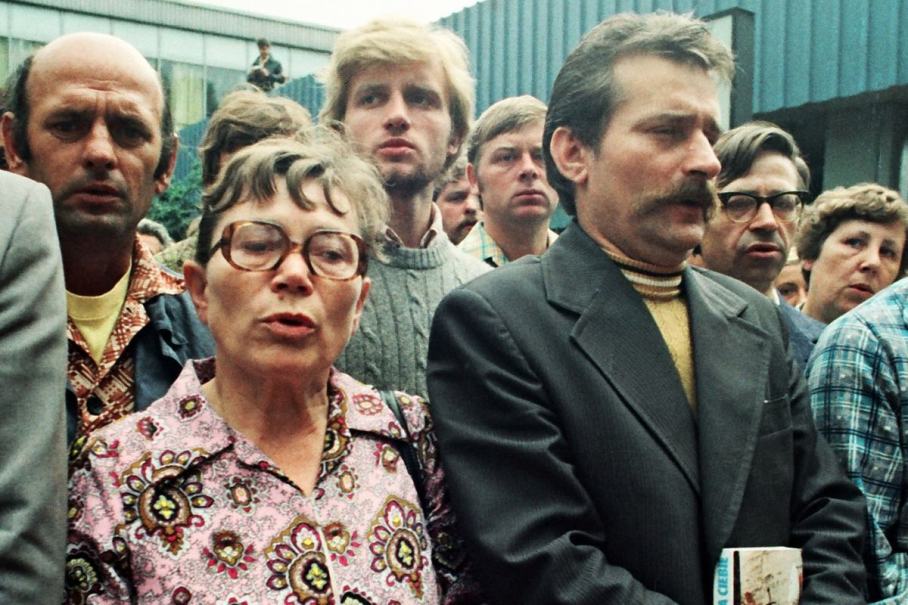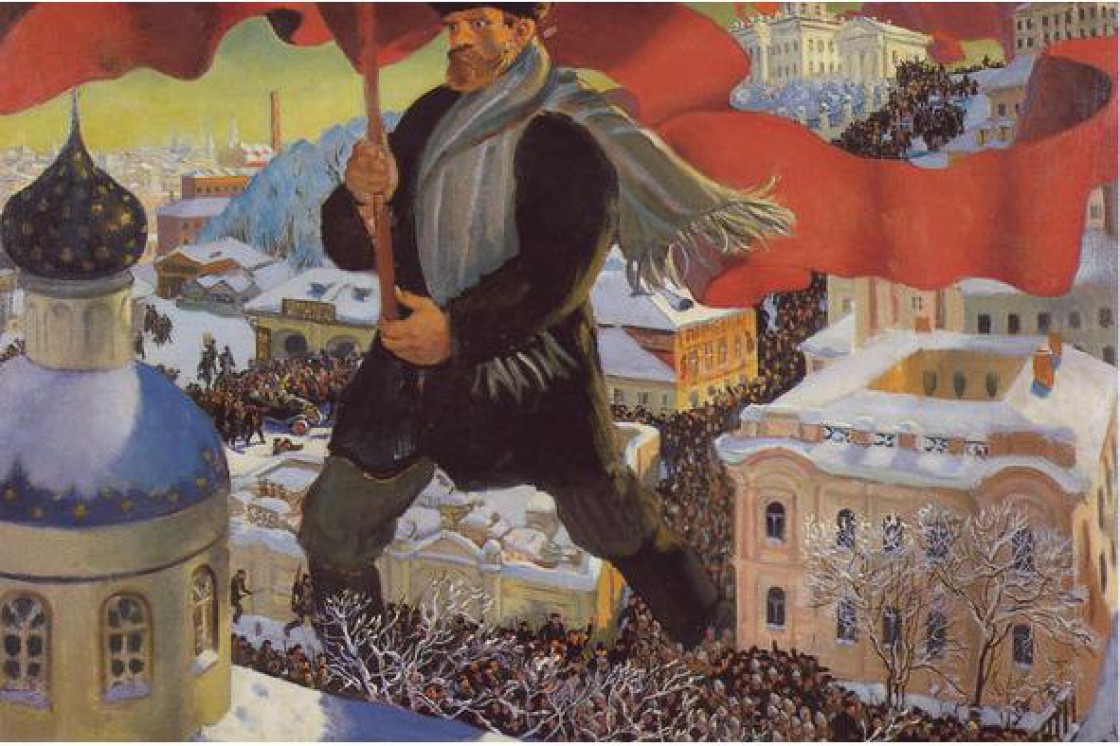The Soviet Union did much to promote a positive image of life within its borders both to the Western world and to its own citizens. However, it is hard to deceive someone about the quality of their own life. By the late 1970’s, the Polish people had become disenchanted with Soviet rule for several reasons. In 1970, worker strikes broke out at the Lenin shipyards in Gdansk. As the decade progressed, more and more strikes occurred due to the stagnated economy. 1980 saw the creation of Solidarity, a movement dedicated to promoting better worker conditions. Negotiations between Solidarity and the Polish government bore no fruit. Continued strikes led to a complete oppression of Solidarity by the military, forcing the movement underground.

Workers praying at the Gdansk shipyard.
The Polish people also had a great point of contention with the Soviets that existed at a more fundamental level. Since its genesis, the Soviet Union had done its best to suppress religion through propaganda and confiscation of Church property. Poland had been a Catholic stronghold for several centuries, and the Church continued to survive through Soviet occupation. In 1978, a Polish Cardinal by the name of Karl Wojtyla was elected as Pope John Paul II. In 1979, he made an historic visit to his home country. In the course of 9 days, nearly a third of Poland saw him – in person. The Soviet authorities expected mere thousands to show up to see him. They were wrong. By a lot. Millions of people flooded the streets wherever he went. One of the most memorable moments came in Victory Square of Old City during a speech that followed the celebration of the Mass. After exhorting his countrymen to courage through hard times and reminding them that history and life must be understood in light of Christ (something blatantly adverse to Marxism) the crowd began to chant “We want God!” Pope John Paul II’s trip to Poland charged the Polish people to remain strong in the faith, which broke the Soviet’s control over the people and exposed the false reality of a great, fulfilling life under the Soviets. The people of Poland wanted more than what the Soviets had to offer. They sought the happiness and truth only the Church could offer.

John Paul II in Poland, 1979
Lewis Siegelbaum. Solidarity in Poland.
http://news.bbc.co.uk/onthisday/hi/dates/stories/june/2/newsid_3972000/3972361.stm
Peggy Noonan. ‘We Want God’. http://www.wsj.com/articles/SB122479408458463941

I had no idea that religion, and the arrival of the Pope, had this sort of impact on the Polish people during this time. I think this serves as another great example of how the Soviet people often sought more than what the Soviet government could provide. You can only shield your people from outside influences for so long, and Poland serves as a great example. Great post!
Very interesting post. Religion is definitely a strong factor in the Russian culture, so strong that despite the oppression the Soviets used throughout their long rule, they were never able to extinguish the people’s religion. The catholic church preservation despite religious censorship was intriguing, especially the part about how the passion for the faith was so widespread in Poland that one-third of the nation’s population saw the pope in person.
This post was really interesting, I never knew that religion could play a role in a country’s push for independence. I wrote about the Baltic States and their call for independence from the Soviet Union. Although they were suffering from similar situations that the Polish were, the Baltic States approached their frustration in a different way. It is fascinating to see a country get behind their religion to achieve its freedom from the Soviet Union.
I found it fascinating that one third of the population was able to visit the pope within his 9 day visit. Their commitment to the Catholic Church throughout the years, despite the Soviet’s suppression goes to show just how powerful religion is (hence why the Soviet’s sought to eliminate it). The most interesting part of the the post is how extremely wrong the Soviet’s were in estimating how many people were going to view the pope. Great post!
Fascinating post. Poland’s mistrust of Russia continues to this day, and Poland was quick to get NATO membership following the end of the Cold War
This is an awesome post. The pope has of course a person of extreme influence throughout history, but it’s still surprising to me that this John Paul II had this much influence over the Polish people. It makes me wonder how much solidarity is usually cultivated when a nation has one of its own chosen as Pope.